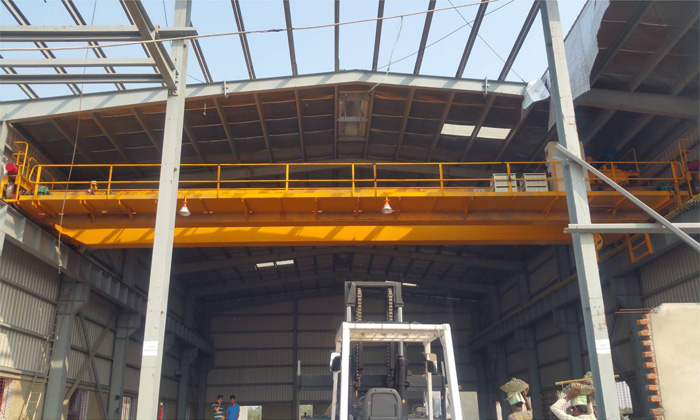bridge crane is installed at upside in workshop, warehouse and open dumps, it is used for lifting machinery and equipment of various objects. It is the most widely used machinery in machinery industry, metallurgical industry and chemical industry.

In modern industrial enterprises, it is one of the important equipment to achieve the production process mechanization and automation, reduce the heavy manual labor, and improve production efficiency. The usage of bridge crane should pay attention to the following safety matters:
1.Crane must be at normal state, especially the safety devices, such as the brake mechanism, sound and light, signal, interlocking, all these devices must be sensitive and intact.
2.Operator must concentrate on the work process, idle before lifting , then lift, hang from the ground 100 ~ 150mms, if the load bound is not tight, It should be rebound. Hang the signal bell before operating; it is forbidden to cross lifting material over people’s head, after the crane is started, no repairing, inspection, refueling and wiping. If the parts find fault in the operation, crane must be stopped immediately.
3.After the loading work is finished, crane should be parked in the parking line, put the hook up to the top and empty. All of the controller and the control rod in the zero position, pull off the power switch and lock the driver's door.
4.Bridge crane must be equipped with reliable and sensitive safety device. General there should be buffer, the limiter (stroke limiter, lifting limit device), hoisting limiter, wind rail tongs etc..
5.All shell of the charged parts should be reliable grounding, in order to avoid the operator getting electric shock accident. If the trolley track is not welded on the main beam, the welding grounding should also be adopted.
6.overhead crane lifting shall be forbidden in the following circumstances: